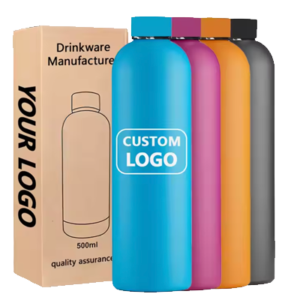What is titanium alloy anodizing?
Titanium alloy is a high-performance metal known for its exceptional strength, lightweight nature, and outstanding corrosion resistance. These properties make it a preferred material in industries like aerospace, medical devices, and chemical manufacturing. To further enhance its surface performance, anodizing technology is commonly employed as a surface treatment method.
Table of Contents
ToggleWhat is Titanium Alloy Anodizing?
Titanium alloy anodizing is a surface treatment technique that uses an electrochemical process to form a protective oxide film on the metal’s surface. This oxide film significantly enhances the surface properties of titanium alloy, including hardness, abrasion resistance, and corrosion resistance. Additionally, the anodizing process allows for the adjustment of the oxide film’s thickness and color by controlling parameters such as oxidation time and voltage. The resulting surface can display a range of colors, including dark gray, brown, and golden yellow, depending on the thickness and composition of the oxide layer.
Key Benefits of Anodizing Titanium Alloy
- High Hardness: The oxide film created during anodizing can achieve a hardness level between 600 and 1000 HV, which is several times greater than the hardness of untreated titanium alloy.
- Enhanced Corrosion Resistance: The dense oxide layer acts as a barrier, protecting the titanium alloy from environmental factors such as oxidation and chemical corrosion.
- Aesthetic Versatility: Anodizing allows for the creation of various surface colors, such as golden yellow, dark gray, and brown. These decorative properties enhance the visual appeal of titanium alloy products.
- Eco-Friendly Process: Anodizing is an environmentally friendly surface treatment that produces no harmful byproducts, making it a sustainable option for manufacturers.
The Anodizing Process
The anodizing process for titanium alloy typically involves the following steps:
- Cleaning: The surface is thoroughly cleaned to remove contaminants.
- Degreasing: Oils and grease are eliminated to ensure uniform treatment.
- Pickling: The surface is prepared by removing the natural oxide layer.
- Anodizing: Electrochemical oxidation forms the desired oxide film. Voltage, current, and oxidation time are carefully controlled to achieve the desired properties.
- Dyeing (Optional): The oxide film can be dyed for additional color variations.
- Sealing: The process concludes with sealing to improve the film’s durability.
Applications in the Water Bottle Industry
In the realm of custom water bottles, titanium alloy anodizing technology is particularly valuable for surface treatment of items like insulated water bottles and coffee pots. By applying this technology, water bottle manufacturers can:
- Improve surface hardness and corrosion resistance, enhancing the durability of their products.
- Add decorative appeal through vibrant colors and finishes, increasing the product’s aesthetic value.
Considerations and Limitations
Despite its advantages, titanium alloy anodizing has some limitations:
- Brittleness: The oxide film can be brittle and susceptible to mechanical damage, necessitating careful handling during use.
- Cost: The process involves significant costs due to the need for specialized equipment and technical expertise.
Titanium alloy anodizing is a highly effective surface treatment technology that enhances the performance, durability, and appearance of titanium products. In industries like the bottle manufacturing sector, this technology can add significant value and competitiveness to products. While it has some limitations, its benefits far outweigh the drawbacks, making it an essential process for high-performance applications.


